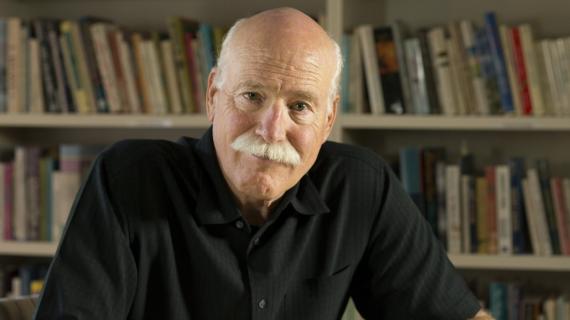
Graduate school. I began classes fresh off a breakup. I had a penchant for drama and Hot Damn 100. After “reconnecting with” (drunk dialing) an old boyfriend, another inevitable breakup ensued. My two best friends in the program left. I suffered recurring bouts of depression, brought on by recurring bouts of not taking my meds. During the worst of it, I nearly stopped eating, subsisting on Ensure “meal supplement” shakes and, if I could handle the effort, an occasional Hot Pocket. My weight plunged. I dragged through campus, a stick figure with crazy eyes.
It was one of the best times of my life.
I made lifelong friendships, found great teachers and mentors. I became a teacher myself. I wrote, of course, which was part pleasure, part pain. And I read. I had to for my classes. But I also had to for my sanity. Stories, the contemporary and the classic: They were a way out and a way in. My critical faculties ballooned to unwieldy proportions. I didn’t like all I read, and when I didn’t, people heard about it. This story was too sentimental, that one was racist, this story patronized its characters, that one was contrived. But even my overgrown criticality was a form of love, a longing for what I knew a story could be. And sometimes a story was more than I ever thought possible.
 One afternoon, over an omelet at Perkins, I took out a photocopy of a short piece I’d been assigned: Tobias Wolff’s "Bullet in the Brain." I began reading a clever story about an all-too-clever protagonist, Anders, a jaded book critic who can’t help mocking the clichéd speech of the armed robbers who’ve burst into his bank. Enter the bullet. I don’t want to say much about what happens next because if you haven’t read the story, you should see for yourself. But what follows is nothing short of a narrative miracle, a feat of artistry and humanity that in two-and-a-half pages makes dying Anders whole.
One afternoon, over an omelet at Perkins, I took out a photocopy of a short piece I’d been assigned: Tobias Wolff’s "Bullet in the Brain." I began reading a clever story about an all-too-clever protagonist, Anders, a jaded book critic who can’t help mocking the clichéd speech of the armed robbers who’ve burst into his bank. Enter the bullet. I don’t want to say much about what happens next because if you haven’t read the story, you should see for yourself. But what follows is nothing short of a narrative miracle, a feat of artistry and humanity that in two-and-a-half pages makes dying Anders whole.
After reading, I rose from the booth, exhilarated and stunned, near tears. As I made my way out of the restaurant, an old woman stopped me. “Excuse me,” she said. “I just have to say, you are so beautiful.” That kind of thing doesn’t happen to me. What she’d seen was the story. Its beauty had somehow become mine.
Good stories share. They give you something you didn’t have before. You can’t hold that something in your hand or buy anything with it. You can’t use it to text or Google or map. But it stays with you.
Years later, what I got from “Bullet in the Brain” has stayed with me. And now, when I think of grad school, I don’t dwell on the heartbreak, the drinking, the loneliness, the depression. I don’t remember the mean quips to my ex I couldn’t seem to control or his fist, beside me, hammering the bed. I don’t remember my drunken pronouncements and peccadillos and hysterics. I don’t remember the sudden, mysterious coolness of a once-dear friend. I don’t remember a particularly bad depression. Or my shame when my friends taught my classes and graded my papers and took out my trash. Or my shame when a professor I hardly knew called to offer his help or when a professor I knew well avoided me in the halls. Or my shame when I officially quit teaching, mid-semester, and fled town.
What I remember is that booth in Perkins, that story, that woman. And I know, without doubt, that it’s good to be alive.
This post is part of our annual Lit Matters series, in which writers and readers express why supporting and elevating literary arts—the mission of Lighthouse Writers Workshop— is important to them. If you agree, consider supporting Lighthouse on Colorado Gives Day. Mark your calendar for December 8 or schedule your gift now. Thank you!
Jenny Wortman is a fiction instructor at Lighthouse and an associate fiction editor for the Colorado Review. Her work has appeared in a variety of literary journals, including the North American Review, Confrontation, the Massachusetts Review, the Southeast Review, and PANK.

